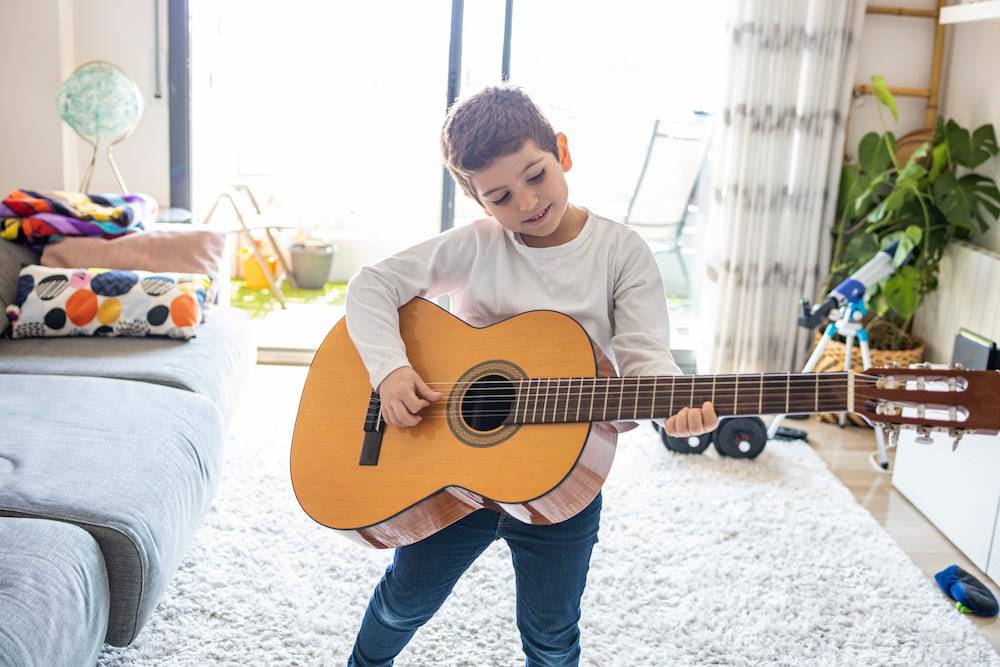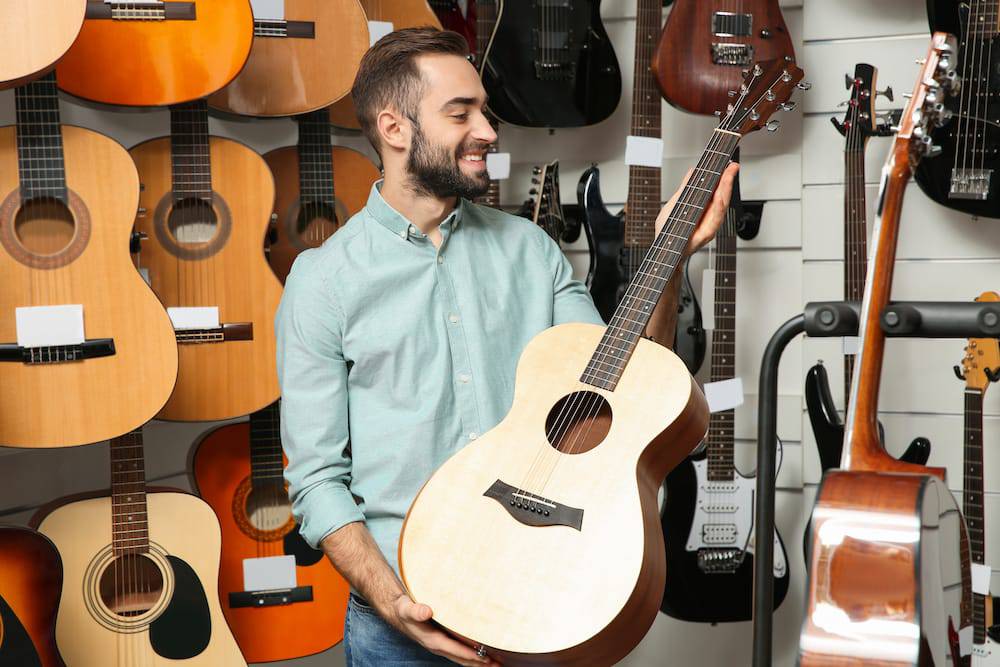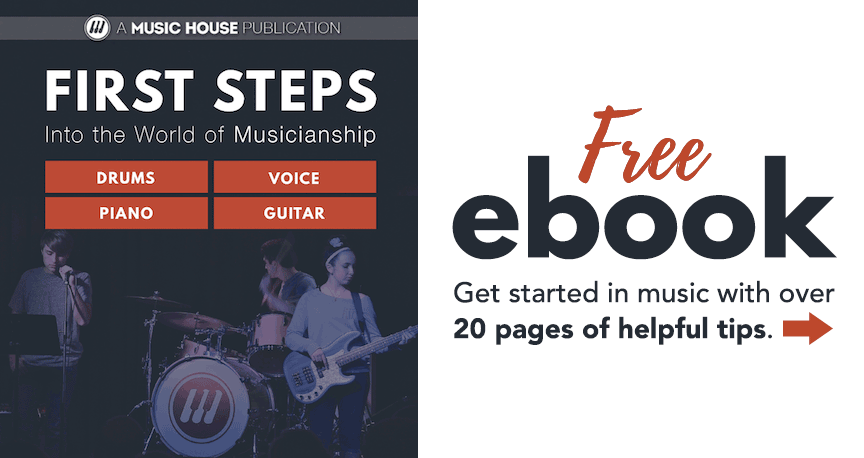Want to Start Playing the Guitar? 6 Things You Need to Know First

The guitar is an extremely popular and versatile instrument because not only is it fun to play, but it has a role in many different musical genres. Whether you’re into red dirt country or face-melting metal, the guitar is usually heavily featured in some of your favorite songs. It is a no brainer why so many are interested in learning the guitar! However, before you begin, there are a few key things you need to know first, including information on where to take the best face to face or online guitar classes. Continue reading to explore some of the best tips courtesy of our team here at Music House!
#1.) Patience is Key
Rome wasn’t built in a day and neither will your ability to play the guitar. Endeavoring to learn such a complex instrument like the guitar will require equal amounts of patience and ambition. Even if you are musically inclined or have played other instruments previously, don’t expect playing the guitar to be a walk in the park. If you are able to quickly learn and overcome obstacles, that’s great! Typically, however, this is not the case.
Don’t feel discouraged, though! Focus on learning the fundamentals and then transition into simple songs or easy melodies. This will help to keep you focused and inspire you to keep getting better. If you are taking face to face or online guitar classes, your instructor will be able to help guide you through this process.
#2.) Build Good Habits
The key to learning anything new, including the guitar, is to build good habits that support that task. First and foremost, it is vital that you practice for a set amount of time every single day. Our staff here at Music House recommends at least 20 minutes daily. Find a comfortable, quiet part of your home that is conducive to learning. This will provide you with the environment you need to focus and tackle new concepts!
On top of that, build good habits in terms of your instrument care as well. Store your instrument safely and properly after each practice session. Take the time to replace your guitar strings when they break or get worn. Keep a few back up guitar picks handy just in case. Doing these few minor care steps will make a big difference in the long run.
#3.) Invest in a Quality Guitar
While you don’t have to head off to your closest music shop and purchase the most expensive guitar on the shelf, keep in mind that the quality of your instrument does matter. If you are a beginner and you’re wanting to keep costs low, search the local social media marketplace or pawn shops for good deals on instruments. When inspecting a used guitar, take note of the current shape and condition of the instrument. Most places will let you try playing it before you purchase, but just remember to be careful so you don’t break it!
Another important point to consider is which instrument you want to learn: electric guitar or acoustic guitar. This determination is typically made based on what genre of music you tend to listen to, but if your music taste is quite eclectic, then the world is your oyster! Have a conversation with other musicians and guitarists and get their input or recommendations.

#4.) Never Skip Warm Ups
One mistake that too many new musicians make, including guitarists, is that they skip over warm ups. We understand that you are eager to learn and dive right into the material, however, warming up is truly invaluable. Not only does it help prepare your body for a jam session but it also puts you in the musical mindset. Learning an instrument or a new piece of music is more than putting your hands in the right position or plucking the right strings, it’s about zeroing in on your task and giving it your all.
In addition to this, warming up can help prevent injuries. Your guitar can’t work without your hands, and if you wind up with carpal tunnel or another injury, that setback can be extremely discouraging. Each one of your hands has over 30 muscles, so make sure that you stretch and warm up accordingly! One again, if this is something you aren’t sure how to do, an instructor would be more than happy to show you
#5.) Learn to Play What You Love
It’s been mentioned several times now, but that’s only because it really matters: learn to play the music that you love. This concept applies regardless of if you are an adult wanting to gain a new school or a teenaged student hoping to start a band with your best friends. There is a reason that you are passionate about music, and no matter what that genre is, take the time to learn your favorite songs. This will help to keep you inspired and focused even in the face of hiccups and setbacks.
#6.) Take Guitar Classes
While there might be an abundance of videos on the internet that offer guitar lessons for beginners, nothing can replace the personalized approachof one on one instruction. Taking face to face or online guitar classes can be a huge game changer and really give you a leg up when it comes to getting a grasp on the fundamentals. A talented instructor knows and understands the ins and outs of teaching guitar to individuals of all ages and musical backgrounds. If you have found that practicing on your own isn’t yielding the results you’d like, then it’s time to call the pros!
Contact Music House Today!
Taking guitar lessons at Music House is more than just paying to sit down with an instructor a few times a month, it’s about becoming a part of a thriving music community. In fact, private lessons are just a small fraction of the work we do. We are also proud to offer early childhood education, band workshops, core classes, summer camps, and so much more. To learn more about us or to sign up for lessons, contact us today!

